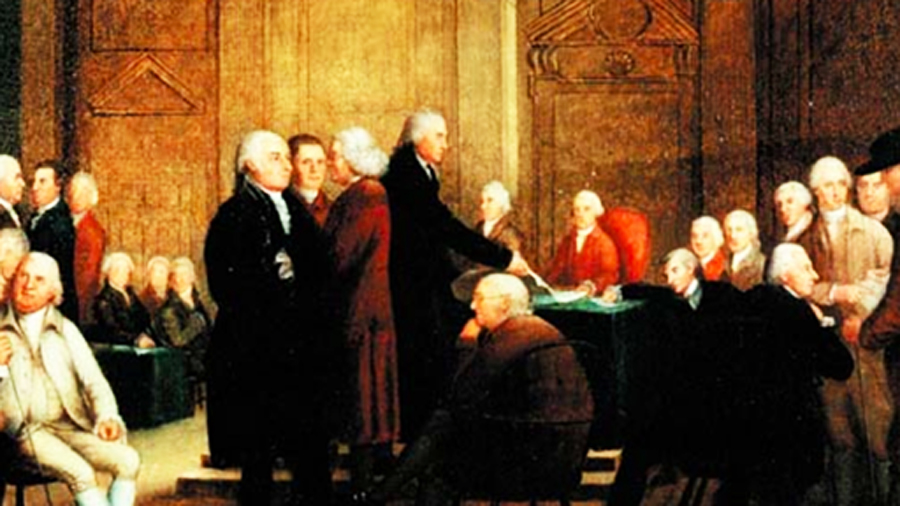
Articles of Confederation submitted to the states on November 17, 1777
Articles of Confederation submitted to the states: On this day in 1777, Congress submits the Articles of Confederation to the states for ratification.
The Articles had been signed by Congress two days earlier, after 16 months of debate. Bickering over land claims between Virginia and Maryland delayed final ratification for almost four more years. Maryland became the last state to approve the Articles on March 1, 1781, affirming them as the outline of the official government of the United States. The nation was guided by the document until the implementation of the current United States Constitution in 1789.
The critical distinction between the Articles of Confederation and the U.S. Constitution–the primacy of the states under the Articles–is best understood by comparing the following lines.
The Articles of Confederation begin:
“To all to whom these Present shall come, we the undersigned Delegates of the States…”
By contrast, the Constitution begins:
“We the People of the United States…do ordain and establish this Constitution for the United States of America.”
The predominance of the states under the Articles of Confederation is made even more explicit by the claims of Article II:
“Each state retains its sovereignty, freedom, and independence, and every power, jurisdiction, and right, which is not by this Confederation expressly delegated to the United States, in Congress assembled.”>
Less than five years after the ratification of the Articles of Confederation, enough leading Americans decided that the system was inadequate to the task of governance that they peacefully overthrew their second government in just over 20 years. The difference between a collection of sovereign states forming a confederation and a federal government created by a sovereign people lay at the heart of the debate as the new American people decided what form their government would take.
Between 1776 and 1787, Americans went from living under a sovereign king, to living in sovereign states, to becoming a sovereign people. That transformation defined the American Revolution.
History.com / Wikipedia / Encyclopedia Britannica / Constitution Center.org
/ Office of the Historian.gov / Library Of Congress.gov / U.S. History.org
/ Articles of Confederation submitted to the states on November 17, 1777 (YouTube) 
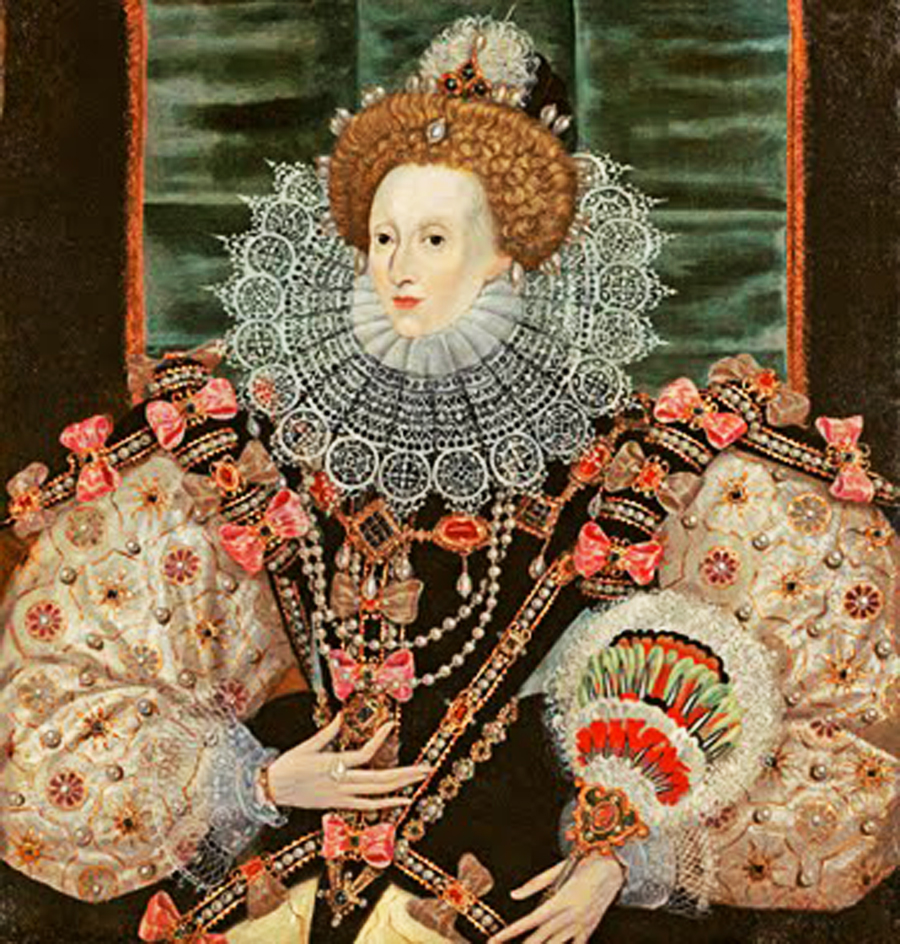
Elizabethan Age begins on November 17, 1558
Elizabethan Age begins: Queen Mary I, the monarch of England and Ireland since 1553, dies and is succeeded by her 25-year-old half-sister, Elizabeth.
The two half-sisters, both daughters of King Henry VIII, had a stormy relationship during Mary’s five-year reign. Mary, who was brought up as a Catholic, enacted pro-Catholic legislation and made efforts to restore the pope to supremacy in England. A Protestant rebellion ensued, and Queen Mary imprisoned Elizabeth, a Protestant, in the Tower of London on suspicion of complicity. After Mary’s death, Elizabeth survived several Catholic plots against her; though her ascension was greeted with approval by most of England’s lords, who were largely Protestant and hoped for greater religious tolerance under a Protestant queen. Under the early guidance of Secretary of State Sir William Cecil, Elizabeth repealed Mary’s pro-Catholic legislation, established a permanent Protestant Church of England, and encouraged the Calvinist reformers in Scotland.
In foreign affairs, Elizabeth practiced a policy of strengthening England’s Protestant allies and dividing her foes. Elizabeth was opposed by the pope, who refused to recognize her legitimacy, and by Spain, a Catholic nation that was at the height of its power. In 1588, English-Spanish rivalry led to an abortive Spanish invasion of England in which the Spanish Armada, the greatest naval force in the world at the time, was destroyed by storms and a determined English navy.
With increasing English domination at sea, Elizabeth encouraged voyages of discovery, such as Sir Francis Drake’s circumnavigation of the world and Sir Walter Raleigh’s expeditions to the North American coast.
The long reign of Elizabeth, who became known as the “Virgin Queen” for her reluctance to endanger her authority through marriage, coincided with the flowering of the English Renaissance, associated with such renowned authors as William Shakespeare. By her death in 1603, England had become a major world power in every respect, and Queen Elizabeth I passed into history as one of England’s greatest monarchs.
History.com / Wikipedia / New World Encyclopedia / Elizabethan-era.org UK / British Council.org
/ Elizabethan Age begins on November 17, 1558 (YouTube) 
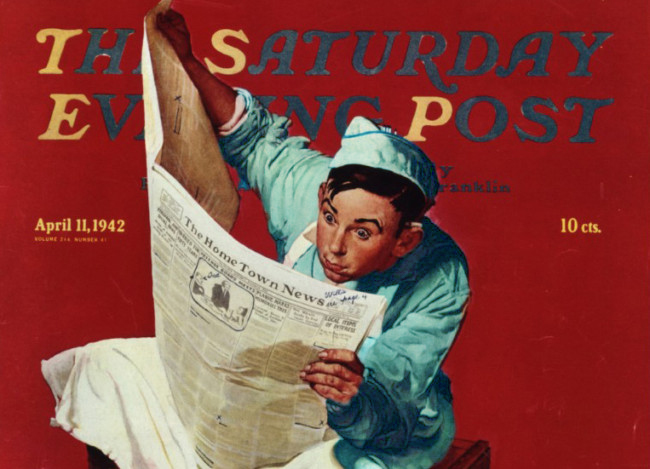
Understanding Military Terminology
National Shipping authority
(DOD) The organization within each Allied government responsible in time of war for the direction of its own merchant shipping.
Also called NSA.
Joint Publications (JP 4-01.2) Joint Tactics, Techniques and Procedures for Sealift Support to Joint Operations

The Old Salt’s Corner
“The Sailor Boy”
He rose at dawn and, fired with hope,
Shot o’er the seething harbour-bar,
And reach’d the ship and caught the rope,
And whistled to the morning star.
And while he whistled long and loud
He heard a fierce mermaiden cry,
“O boy, tho' thou are young and proud,
I see the place where thou wilt lie.”
“The sands and yeasty surges mix
In caves about the dreary bay,
And on thy ribs the limpet sticks,
And in thy heart the scrawl shall play.”
“Fool,” he answer’d, “death is sure
To those that stay and those that roam,
But I will nevermore endure
To sit with empty hands at home.”
“My mother clings about my neck,
My sisters crying, ‘Stay for shame;’
My father raves of death and wreck,-
They are all to blame, they are all to blame.”
“God help me! save I take my part
Of danger on the roaring sea,
A devil rises in my heart,
Far worse than any death to me.”
~ Alfred, Lord Tennyson (1861)

“I’m Just Sayin”
“When you look long into an abyss,
the abyss looks into you.”
“There are no eternal facts,
as there are no absolute truths.”
“Strong hope
is a much greater stimulant of life
than any single realized joy could be.”
“He who has a why to live
can bear almost any how.”
~ Friedrich Nietzsche

“Thought for the Day”
“The greatest remedy for anger is delay.”
“All cruelty springs from weakness.”
“Time heals what reason cannot.”
“Fate leads the willing,
and drags along the reluctant.”
“Be wary of the man who urges an action
in which he himself incurs no risk.”
~ Lucius Annaeus Seneca

“What I Learned”
“You can choose your friends, but you can't choose your enemies.”
“You can fool all of the people some of the time,
and some of the people all of the time,
but you can't fool all of the people all of the time.”
~ Anonymous

Second Hand News (Links to Articles from Week 46 - November 11, 2019 - November 17, 2019)
 House Democrats Go “Public Trial” with their effort to Impeach President Trump
• ANALYSIS: House Republicans used hearing to drum up the base and keep Senate Republicans in line
• ‘Cache of diamonds’: Trump-Biden fight began with corrupt chauffeur n
House Democrats Go “Public Trial” with their effort to Impeach President Trump
• ANALYSIS: House Republicans used hearing to drum up the base and keep Senate Republicans in line
• ‘Cache of diamonds’: Trump-Biden fight began with corrupt chauffeur n
Stalled budget talks in Congress already taking toll on military readiness, modernization
• 'Recalibrating' the global fight against ISIS
• Republican Arizona Rep. Paul Gosar held nothing back in spat with former Democratic California Rep. Katie Hill
Kentucky Republican Senator Rand Paul named the alleged “Whistleblower” Eric Ciaramella and called for him to testify as part of the impeachment hearing
• Top Mueller prosecutor Andrew Weissmann offers impeachment advice to Democrats
• 'Phony “Whistleblower” is the blue dress': Mark Levin invites CIA's Eric Ciaramella onto his show
Washington Examiner
 America stops to watch: Nation is transfixed as Trump impeachment hearing begins with the major broadcast networks and ALL cable news carrying the first proceedings against a president in over 20 years
• President Donald Trump said he had 'never heard' of new bombshell testimony of telling his EU ambassador he cared 'more about the investigations of Biden than Ukraine' after based on a phone conversation provided by diplomat William Taylor when he said an aide of his had overheard the president
America stops to watch: Nation is transfixed as Trump impeachment hearing begins with the major broadcast networks and ALL cable news carrying the first proceedings against a president in over 20 years
• President Donald Trump said he had 'never heard' of new bombshell testimony of telling his EU ambassador he cared 'more about the investigations of Biden than Ukraine' after based on a phone conversation provided by diplomat William Taylor when he said an aide of his had overheard the president
'We AREN'T 'Never Trumpers': First two public impeachment witnesses deny Trump's Twitter claims that they are his political enemies
• You even tried to get nude pictures of Trump: Republicans set out their defense of president against impeachment - painting Democrats as conspiracy theorists obsessed by claims he colluded with Russia
Drag queen Pissi Myles turns newscaster to broadcast from Trump's impeachment hearings and jokes 'tensions are high and the bar is very low for who's allowed in'
• 'They provided the entertainment!' AOC mocks Republicans who called impeachment hearing BORING after one walked out saying he couldn't stay awake
Israel claims it has killed another Islamic Jihad commander in an airstrike that 'left eight members of a family dead' as a cease-fire is broken with a barrage of rockets from Gaza
• ISIS reveals guide to killing world leaders - giving three ways for would-be jihadists to execute 'leaders, officials and military commanders'
Climate change is blamed for floods, wildfires and even an outbreak of the PLAGUE that have all struck across the globe in the last few days
• Ellie Goulding threatens to pull out of Salvation Army Thanksgiving gig unless they make LGBTQ pledge after fans accused the Christian charity of being bigoted
Daily Mail UK

Mr. Answer Man Please Tell Us: Why Do Fleas, Ticks, and Mosquitoes Show Individual Preferences?
Biting insects (bugs, fleas, flies, mites, mosquitoes, ticks) locate and bite their blood host targets from the chemical cues they release. Such cues are volatile organic compound (VOC) produced by their skin microbes after they metabolize human skin gland secretions, i.e., an individual's VOC profile is largely the product of their skin flora. Thus, biting preference is the outcome of how each biting insect's odorant receptors detect the VOCs unique to the individual it bites.
(1). Skin glands are differentially distributed across the body and human skin microbe abundance matches theirs
(2). The human odor profile consists of greater than 400 compounds
(3). Research on which ones are most important in attracting biting insects is very much in its infancy.
One small study (n = 48 adult male volunteers) on the African malaria mosquito Anopheles gambiae sensu stricto found that individuals the mosquitoes found highly attractive had different skin bacteria compared to individuals they found poorly attractive, specifically greater abundance but lower diversity of skin-associated bacteria.
(4). In another small study (n = 48 adult male volunteers) Anopheles gambiae sensu stricto found individuals carrying the human leukocyte antigen gene Cw*07 more attractive.
Since different individuals have different HLA haplotypes,
• Each individual's unique HLA system generates different peptides, i.e., source material their skin-associated microbes metabolize and convert to VOCs is unique.
• Each individual's unique HLA is involved in the immunological processes that culminate in their unique microbial profile since immune responses select which microbes to keep or reject.
(5). Individual genetics also influence skin temperature and humidity profiles, and metabolic rate, which are other factors that influence individuals' differential attractiveness to biting insects. Metabolic rate influences local carbon dioxide levels, which along with ammonia and lactic acid and other aliphatic carboxylic acids influence landing rates of biting insects like mosquitoes.
Since human lifestyle, especially diet, can actively sculpt human microbiota profiles, it's likely future research will reveal how different diets could influence an individual's VOC profile and in turn increase or decrease a biting insects's preference for a particular individual.
Similar processes likely explain the differences between dogs who get ticks versus those who don't. However, in the case of ticks that's only the first step since immune status probably determines whether or not they successfully establish an infection, healthier dogs fending off ticks that could stably colonize less healthy ones.
Health Line
• Insect Identification.org
• Mental Floss
• Texas A&M AgriLife Extension
• Web MD
• Wikipedia
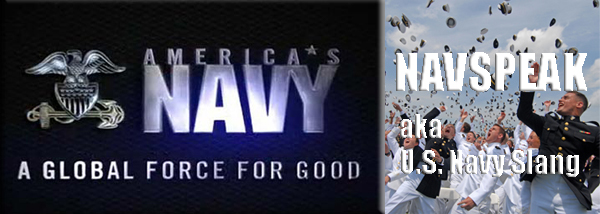
NAVSPEAK aka U.S. Navy Slang
Grog: Initially, this referred to the watered down rum ration given daily to sailors in the Royal Navy.
Presently, in the USN, it refers to the alcoholic brew offered at social events like “dining-ins” and “dining-outs”. Depending on the wardroom and in particular on the person preparing the grog, it may be pleasant and delicious or one of the most foul and disgusting beverages ever conceived.
Grok (Nuke Field Geek): To understand completely. From Stranger In A Strange Land by Robert A. Heinlein (USNA '29).
Gundeck: To juryrig something; falsifying or misrepresenting records and reports. Occasionally, gundecking (while technically wrong) may have to be done to satisfy an inspection of an otherwise nonessential or useless program. Gundecking any reports constitutes falsifying an official document, and can be punishable by Captain's Mast or even a Court-Martial, should the person gundecking be caught, which they almost always are.
Gun Boss: Weapons Department head.
Gunner: Term applied to and used in addressing (informally) an Ordnance Technician Surface Warrant Officer.
Guns: A sailor in the Gunner's Mate rating.
Gunwale: (pronounced “gunnel”) The top of the hull portion of a ship that runs down the port and starboard sides.
Gut: The section of a port city or town where visiting sailors can find cheap booze, games of chance, ladies of the night, a bar brawl or two, and other entertainment. Often placed off limits by the captain.
Gyrene (derogatory, Navy term): A U.S. Marine; a “jarhead”.
Wiktionary.org

Just for you MARINE
Guide: Unit guidon-bearer; in recruit training, also the senior recruit and responsible for the actions of all recruits in a platoon.
Gumby Suit: Two pieced wet weather gear consisting of a hooded jacket and overalls used until the mid-1990s when the Gore-Tex replaced it. So named because it is green in color and the wearers tended to look like the character Gumby. Those who have worn them can remember its distinctive rubber cloth odor. Gumby Suits can still be found for purchase at military surplus stores.
Gun Bunny: Artilleryman. See also cannon cocker and red leg. Also refers to a Marine unit's Armorers, as they spend long hours inside the armory conducting maintenance on weapons.
Gun Club: Slang term for the USMC at-large as in “I've been in this gun club longer than you.” Use in presence of senior personnel is inappropriate. Use by civilians or members of other services is considered disrespectful.
Gun Doc: Nickname for a 2111 SART or 2131 TAST.
Gung ho: Chinese phrase meaning to “work together”, it became the battle cry of the Marine Raiders.
Gunner: Shortened form of Marine Gunner, a nickname for an Infantry Weapons Officer; used informally to refer to all warrant officer ranks. A Gunner within Field Artillery is responsible for traversing the cannon tube during emplacement & fire missions. & is 1 of 2 jobs on a gun which requires qualification.
Gunny: Nickname for Gunnery Sergeant, improper to call a Master Gunnery Sergeant this.
Gyrene: Nickname for a Marine, considered to be a grievous insult; combination of the words “GI” and “Marine”.
Wikipedia.org

Naval Aviation Squadron Nicknames
VX-30 Air Test and Evaluation Squadron 30 (AIRTEVRON THREE ZERO or VX-30) - nicknamed the “Bloodhounds”
United States Navy - Naval Air Station - Naval Air Station Point Mugu, California: May 1995 - Present.

Where Did That Saying Come From?

“Every man has his price:”
Meaning: The proverbial saying 'every cloud has a silver lining' is used to convey the notion that, no matter how bad a situation might seem, there is always has some good aspect to it. This expression is usually said as an encouragement to a person who is overcome by some difficulty and is unable to see any positive way forward.
History: John Milton coined the phrase 'silver lining' in Comus: A Mask Presented at Ludlow Castle, 1634:
“I see ye visibly, and now believe
That he, the Supreme Good, to whom all things ill
Are but as slavish officers of vengeance,
Would send a glistering guardian, if need were
To keep my life and honour unassailed.
Was I deceived, or did a sable cloud
Turn forth her silver lining on the night?
I did not err; there does a sable cloud
Turn forth her silver lining on the night,
And casts a gleam over this tufted grove..”
'Clouds' and 'silver linings' were referred to often in literature from then onward, usually citing Milton and frequently referring to them as Milton's clouds. It isn't until the days of the uplifting language of Victoria's England that we begin to hear the proverbial form that we are now familiar with - 'every cloud has a silver lining'. The first occurrence that is unequivocally expressing that notion comes in The Dublin Magazine, Volume 1, 1840, in a review of the novel Marian; or, a Young Maid's Fortunes, by Mrs S. Hall, which was published in 1840:
As Katty Macane has it, “there's a silver lining to every cloud that sails about the heavens if we could only see it.”
'There's a silver lining to every cloud' was the form that the proverb was usually expressed in the Victorian era. The currently used 'every cloud has a silver lining' did appear, in another literary review, in 1849. The New monthly belle assemblée, Volume 31 include what purported to be a quotation from Mrs Hall's book - “Every man has his price”, but which didn't in fact appear in Marian, which merely reproduced Milton's original text.
Phrases.org UK

Science & Technology

This is the world’s largest patch of seaweed - And it’s growing in an unexpected place
• Adding 1 billion hectares of forest could help check global warming
• Biblical Philistines - archenemies of ancient Israelites - hailed from Europe, DNA reveals
• Astronomers probe atmosphere of alien world that’s a cross between Earth and Neptune
• Even if you don’t play contact sports, you could develop signs of traumatic brain injury
• Gut bacteria could be key to producing tastier cow’s milk
Science AAAS

Bizarre News (we couldn’t make up stuff this good - real news story)
A Pair of Shipwrecked, WWII-Era Submarines Just Vanished from the Sea Near Malaysia
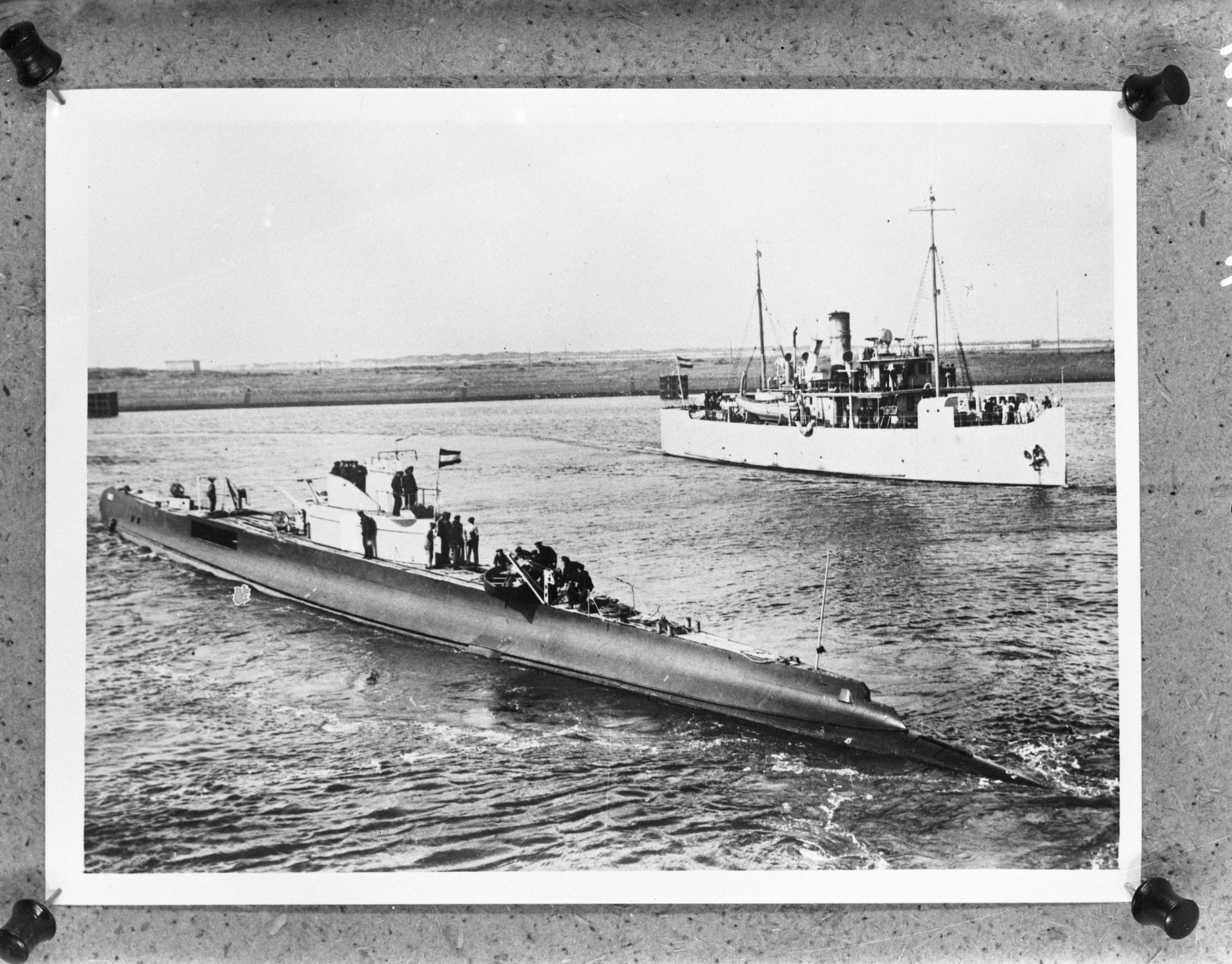
More than 100 World War II-era shipwrecks decorate the seafloor around Indonesia, Malaysia and Singapore - and now, there are two fewer.
According to Dutch media reports, a pair of submarines that sank off the coast of Malaysia in 1941 mysteriously vanished late last week, leaving behind only some broken scraps and ghostly outlines in the sand. The wrecked subs - Dutch vessels named HNLMS O 16 and HNLMS K XVII - also contained the remains of 79 crewmen, which are now missing. [17 Mysterious Shipwrecks You Can See on Google Earth]
How does a shipwreck simply disappear? According to Dutch government officials, the subs were likely stolen by scrap-metal scavengers, who have made a habit of pilfering old wrecks from the region. As many as 40 World War II-era ships have been partially or completely dismantled by scavengers, a 2017 report by the Guardian found, resulting in the desecration of the remains of some 4,500 crewmen who went down with their ships.

Salvaging a shipwreck usually requires blowing the vessel apart with explosives, then spending days or weeks hauling any valuable metals up onto the surface with a crane. For their trouble, scavengers can come away with millions of dollars' worth of steel per ransacked ship, plus other spoils, such as copper cables and phosphor bronze propellers, according to the Guardian article.
Wartime shipwrecks are protected under international treaties as the unmarked graves of departed soldiers - however, that has not stopped salvagers from destroying the wrecks of the American, British, Dutch, English, Australian and Japanese vessels resting in South East Asian waters.
In March 2018, Malaysian officials signed an agreement with the Dutch foreign minister to better protect Dutch war wrecks in Malaysia’s waters. (Parts of Malaysia were once under Dutch colonial rule.) The agreement followed a string of particularly serious shipwreck desecrations; in 2016, the wrecks of three Dutch warships vanished from the bottom of the Java Sea off the coast of Indonesia, along with the remains of 2,200 people, the Guardian reported.
• Disasters at Sea: 6 Deadliest Shipwrecks
• In Photos: Diving for a Famed Roman Shipwreck
• Shipwrecks Gallery: Secrets of the Deep
Live Science (07/09/2019) 

Second Hand News (Links to Articles from Week 46 - November 11, 2019 - November 17, 2019) - Part Deux
 CORRUPTION CHRONICLES: Judicial Watch Obtains Strzok-Page Emails Disputing Hillary Clinton’s Claim That She ‘Never Received nor Sent Any Material That Was Marked Classified’
CORRUPTION CHRONICLES: Judicial Watch Obtains Strzok-Page Emails Disputing Hillary Clinton’s Claim That She ‘Never Received nor Sent Any Material That Was Marked Classified’
“Investigating the Investigators:” Judicial Watch Sues for Russia Collusion FISA Docs; JW’s Investigating the Investigators; JW Sues DOJ for Comms. that Started Investigation of Trump’s Campaign
Judicial Watch Sues for Documents on Obama/UN Effort to Undermine Elected Government in Guatemala
Big Tech Is Censoring Judicial Watch For Talking About White House “Whistleblower” - But It Won’t Stop Us
Judicial Watch
 The Plot Against the President: The True Story of How Congressman Devin Nunes Uncovered the Biggest Political Scandal in U.S. History
The Plot Against the President: The True Story of How Congressman Devin Nunes Uncovered the Biggest Political Scandal in U.S. History
 2 of 4
2 of 4
 3 of 4
3 of 4
 4 of 4
4 of 4

“The power to tax is the power to destroy.”

Tales of the New Cold War: Complete: Why is Ukraine corrupt? "Forget it, Jake. It's Chinatown."

Nancy Pelosi controls impeachment with Adam Schiff, not Jerry Nadler.

Brilliant Starlink. NASA chutes sort of work; overall costs: how much ya got?
 John Batchelor (11/14/2019)
John Batchelor (11/14/2019)

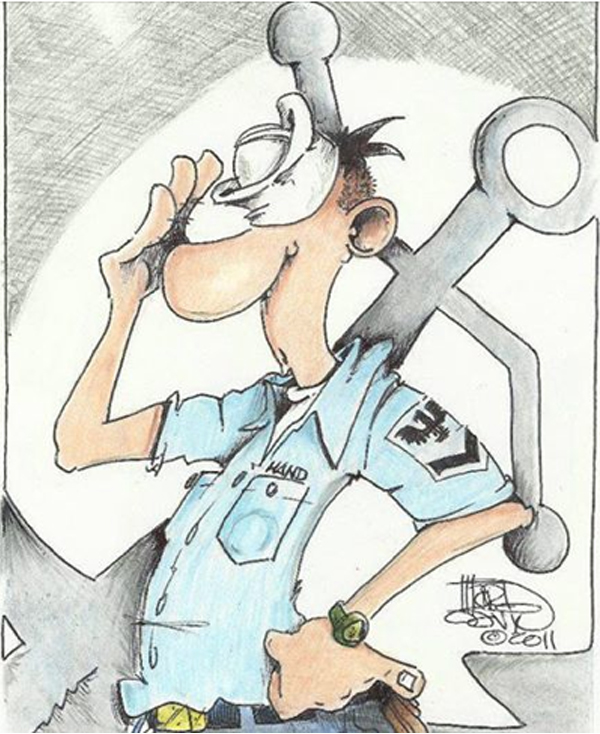
SONG FACTS
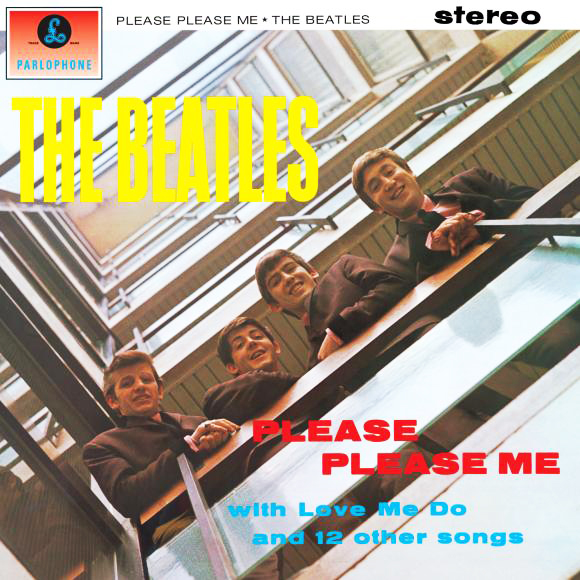
“Love Me Do” - The Beatles
Album: Please Please Me
Released 1962 
John Lennon and Paul McCartney wrote this in 1958, when John was 17 and Paul was 16. They made time for songwriting by skipping school. They had written songs before, but this was the first one they liked enough to record.
McCartney wrote this about his girlfriend at the time, Iris Caldwell.
This was The Beatles first single. It was released in England by Parlophone Records, but it took a while before they could get a record company to distribute it in America. The Beatles wanted Capitol Records to release it in the U.S., but they refused, figuring it would flop. It went to Tollie Records, who released it in America during Beatlemania, about a year after it was released in England.
By 1962, The Beatles were playing regular gigs at a club in Hamburg, Germany. They played a lot of Blues covers by famous American artists, and it was a big deal for them when they introduced this into their set, as they didn't know how it would hold up against songs by Little Richard and Ray Charles. The song was well-received and gave The Beatles a lot of confidence, which led to them writing and performing more original songs.
When they played this for an audition with Parlophone Records, the producer they auditioned for was George Martin, who became a key figure in Beatles history as he helped shape their sound. He started tinkering with the song right away, adding the harmonica part. Fortunately, John Lennon knew how to play the harmonica and was able to come up with something.
The Beatles recorded versions of this song with three different drummers. At their first Parlophone audition in June 1962, Pete Best was still their drummer. When they recorded it on September 4, Ringo was their drummer, but when George Martin decided it would be the single, he had them record it again a week later.
At this session, he used a session drummer named Andy White and stuck Ringo with the tambourine. The version with Ringo drumming was released as the single, but the version released on the album had Andy White's drumming. Ringo didn't pitch a fit when he got bumped at the session, but was very upset and felt real insecure, especially since The Beatles had just fired a drummer.
When this was released in England, it was not a big hit. The Beatles' manager, Brian Epstein, was so confident in the group that he gave the single a big marketing push by buying a bunch of copies of it (some say 10,000) for his record store, which helped get it on the charts and ensured more exposure for the band.
The Beatles were very close to releasing another song as their first single. At their September 4 recording session, George Martin decided their first single should be a song called “How Do You Do It?”  which was written by someone else. The Beatles were not pleased and did some lackluster takes of the song before they were allowed to record “Love Me Do”.
Eventually, Martin changed his mind and went with “Love Me Do”. “How Do You Do It?”
which was written by someone else. The Beatles were not pleased and did some lackluster takes of the song before they were allowed to record “Love Me Do”.
Eventually, Martin changed his mind and went with “Love Me Do”. “How Do You Do It?”  became a hit for Gerry and the Pacemakers in 1964.
became a hit for Gerry and the Pacemakers in 1964.
Before they recorded this, Lennon always sang the lead vocal, but when his harmonica part was added, McCartney had to sing it because Lennon's mouth was full of harmonica. Paul claims that you can hear the fear in his voice at the audition.
John stole the harmonica used in this song in a music shop in Arnhem, a Dutch town near to the German border, while The Beatles were on their way to Hamburg.
Lennon's lips went numb from playing the harmonica at session. He was trying to sound like Delbert McClinton.
Paul McCartney called this “Our greatest philosophical song.”
This was recorded in mono on one-track tape. No stereo version exists.
When John's Aunt Mimi heard this song, she said to him “Well, if you think you're going to make a fortune with that, you've got another thing coming.”
The Beatles, official site (The Official Top 50 biggest selling Beatles singles revealed) / Rock & Roll Hall of Fame / Billboard / All Music / Song Facts / Ultimate Classic Rock / Wikipedia
Image: “Please Please Me (album)” by The Beatles

Trivia
● The earliest written accounts of travels in the far east were written in the late 13th century by which European explorer?
Answer to Trivia
● What GPS brand is named after a Portuguese navigator and explorer?
Answer to Trivia
● What kind of beverage was invented for, and named after, the athletes at the University of Florida?
Answer to Trivia
● This person had so many musical hits in the 1950's that he became the first artist ever to release a "Greatest Hits" album. It stayed in the Billboard top album charts for over 7 years! Which musical artist is this?
Answer to Trivia

A Test for People Who Know Everything
From the Jeopardy Archives Category - “PRESIDENTIAL NICKNAMES” ($200)
“'Sword of the Revolution'.”
● Answer for People Who Do Not Know Everything, or Want to Verify Their Answer Mount Vernon.org
From the Jeopardy Archives Category - “PRESIDENTIAL NICKNAMES” ($600)
“'The Trust Buster'.”
● Answer for People Who Do Not Know Everything, or Want to Verify Their Answer National Park Service
From the Jeopardy Archives Category - “PRESIDENTIAL NICKNAMES” ($800)
“'Father of the Bill of Rights'.”
● Answer for People Who Do Not Know Everything, or Want to Verify Their Answer Montpelier.org
Answer to Last Week's Test
From the Jeopardy Archives Category - “INNOVATIONS ($200)
“1893: Fashion fastener”
● Answer: A Zipper. Encyclopedia Britannica
From the Jeopardy Archives Category - “INNOVATIONS” ($400)
“1569: Mercator's masterpiece.”
● Answer: A Map. National Geographic
From the Jeopardy Archives Category - “INNOVATIONS” ($1,000)
“1924: Current cutoff contraption.”
● Answer: A Circuit Breaker. Ox UK

Joke of the Day
“On the Playground”

On the Playground
Finding one of her students making faces at others on the playground, Ms. Smith stopped to gently reprimand the child.
Smiling sweetly, the Sunday school teacher said, “Johnny, when I was a little girl, I was told if that I made ugly faces, it would freeze and I would stay like that.”
Little Johnny looked up and replied, “Well, Ms Smith, you can’t say you weren’t warned.”

































